Editorial
Another ‘loincloth remedy’

Monday 17th January, 2022
Now, anyone could import rice, paying as little as 25 cents a kilo as duty. Trade Minister Bandula Gunawardena has said the government decision is aimed at preventing a rice shortage and bringing rice prices down. But the question is whether enough foreign exchange is available for rice imports. Minster Gunawardena himself has admitted that there are already 500 freight containers of rice at the Colombo Port pending clearance. The power and energy sectors are in a mega crisis as the country is without enough dollars to pay for fuel imports. Most industries dependent on imported raw materials are struggling to stay afloat; some of them have already gone belly up. Will the Trade Minister or any other SLPP grandee claiming to be well versed in the dismal science explain how forex will be found for rice imports?
The rice shortage and attendant price increases have come about for two reasons. One is the fertiliser shortage, which has resulted in a sharp drop in the Maha yield, and the other is hoarding by big-time millers and wholesalers. The government is not willing to change its fertiliser policy, which has run into stiff resistance from resentful farmers, and it is too impotent to take on the Millers’ Mafia, which has become a law unto itself as politicians benefit from its largesse during elections.
Rice imports are only a band-aid remedy. True, any essential commodity has to be imported in case of a severe shortfall in the domestic supply thereof, but such measures must necessarily be short-term; the government does not seem to know when it will be able to stop rice imports. Unless the fertiliser crisis is resolved urgently, rice imports will go on until the end of time, and several other agricultural products, too, will have to be imported. The country’s food security will be pie in the sky in such an eventuality.
SLPP MP and former President Maithripala Sirisena has, in an interview with Siyatha TV, said he wonders whether there is a move to discourage farmers from engaging in agriculture and drive them to sell their lands to private companies. Multinational corporations have already acquired large extents of land for commercial agriculture here; prominent among them is an international banana producer, which got a foothold here during the previous Rajapaksa government. The present-day leaders seem relentless in their efforts to turn this country into a banana republic.
Meanwhile, let Sirisena be told that his family is also responsible for farmers’ woes; his brother, Dudley, is one of the millers who make unconscionable profits by exploiting both the farmer and the consumer alike; and his relative, State Minister Siripala Gamlath, is also a miller thriving at the expense of the poor paddy farmers and hapless consumers. Shouldn’t he put his own house in order instead of shedding copious tears for farmers and consumers?
Whether the government is working according to a secret plan to make farmers fed up with agriculture, one may not know, but its wrong agricultural policies are fraught with the danger of discouraging the farming community. When farmers suffer massive yield losses, and cannot recover production costs, much less redeem their valuables pawned to raise funds for cultivation purposes, they will be left with no alternative but to vote with their feet. Some of them have already done so, and unless this trend is arrested urgently, the country’s economic crisis will worsen with more dollars having to be spent on food imports. Besides, rural poverty will increase exponentially, and the farmers reduced to penury are likely to migrate to urban centres looking for jobs that are not there. The country may run out of dollars at this rate, and therefore the people will have to starve if imports are promoted as government policy at the expense of the local production of main food items. (We might achieve self-sufficiency only in turmeric!)
The government’s decision to promote imports as a solution to the rice shortage instead of addressing the root causes of the problem is like using a loincloth to control diarrhoea, as a local saying goes.
Editorial
Drivers from hell

Monday 6th January, 2025
President Anura Kumara Dissanayake’s ambitious, catch-all project, ‘Clean Sri Lanka’, is in the same perilous situation as pedestrians in this country—it runs the risk of being knocked down by private buses and trishaws, in a manner of speaking. As part of the ‘Clean Sri Lanka’ initiative, the police have been in overdrive during the past few days to nab errant private bus and trishaw drivers and strip their contraptions of unauthorised accessories, deafening horns, blinding lights and overly loud exhausts. They are also deploying plainclothesmen in buses to watch out for traffic law violations committed by drivers. They have so far instituted legal action against a large number of drivers. More power to their elbow!
Associations of private bus and trishaw operators are letting out howls of protests against the ongoing programme to make roads safe. Claiming that drivers find it extremely difficult to operate under the current circumstances, those outfits have issued warning to the government; they say they will be compelled to adopt countermeasures unless the police abandon the road safety programme. If private bus and tuk-tuk fraternities abide by the law, they will not be affected by the ongoing police operations. They are protesting because they commit offences such as driving under the influence of alcohol or narcotics, reckless driving, using mobile phones while driving, lane jumping, ignoring signal lights, disregarding pedestrians’ right of way, etc.
Having backed the JVP-led NPP to the hilt in the presidential and parliamentary elections, last year, the warring private bus and trishaw operators seem to think they enjoy legal immunity. Their spokespersons have audaciously asked the police not to devalue the ‘Clean Sri Lanka’ programme by conducting the ongoing operations aimed at making roads safe for everyone!
The NPP government has already capitulated to a bunch of big-time rice millers who have become a law unto themselves, and are apparently running a parallel government. They bankroll election campaigns and have government leaders eating out of their hands. This has led to a situation where a handful of wealthy millers are exploiting consumers and paddy farmers with impunity.
The NPP leaders used to bellow rhetoric, vowing to tame the millers and ensure that the interests of the farming community and the public would prevail, but they float like bees and sting like butterflies when they confront the millers’ cartel. Whether they will give in to pressure from the protesting bus and trishaw operators and ask the police to give the lawbreakers free rein remains to be seen.
President of the Lanka Private Bus Owners’ Association Gemunu Wijeratne, who is protesting against the current traffic police operations, has gone on record as saying that about 50% of bus workers are addicted to narcotics. That is the reason why the police must keep a watchful eye on private bus drivers to ensure the safety of all road users. Instead of flaying the police and the government, he ought to extend the fullest cooperation of his association to them. Similarly, the government should look into the private bus drivers’ grievances. They are without proper rest areas. Most of them are overworked and therefore fatigued. Stress may be one of the reasons for their addiction to alcohol and narcotics, and this aspect of the problem needs to be addressed. But nothing can be cited in extenuation of the violation of traffic laws and endangering the lives of road users. The police must be given a free hand to deal with the drivers from hell and prevent road accidents which destroy about seven lives a day.
The NPP leaders may be able to hold their political enemies at bay, but it looks as if they needed divine help to save themselves from their ‘friends’ in the garb of millers, cabbies and private bus drivers.
In fact, with friends like the protesting private bus and trishaw operators, the government needs no enemies.
Editorial
Hemin, hemin (slowly, slowly)

The dawn of the New Year 2025 last week, with a new president and a new government enjoying what is being called a “super majority” in parliament raises the inevitable question of whether the country can be made to take a new direction ensuring the promised better life for all its people.
“System change” has been the buzzword since the aragalaya in 2022 compelled first the resignation of then Prime Minister Mahinda Rajapaksa followed by that of his brother, President Gotabaya Rajapaksa who fled the country and tendered his resignation from Singapore. The unlikely ascension of Ranil Wickremesinghe, who had lost his own parliamentary seat in the 2020 general election having led the United National Party to a zero elected seat debacle, followed two years later.
The country was in a shambles with motorists lining up in miles long fuel queues with those seeking cooking gas for their kitchens faring little better. Everything that could go wrong had gone wrong but GR, thankfully, did not order the military and the police to shoot at the rioters at his gates. Wickremesinghe who had entered parliament after much foot dragging via the single National List place won by the UNP was elected to serve the balance Gotabaya Rajapaksa presidential term by the Sri Lanka Podu Jana Peramuna (SLPP), the Rajapaksa party.
He to his credit he was able to restore a semblance of normalcy thanks to negotiating a demanding IMF program and the generosity of India. But this was achieved at great cost to ordinary people burdened with a near unbearable cost of living necessitated by IMF insistence that the government reaches prescribed revenue targets and achieve debt sustainability.
An all pervading Value Added Tax (VAT) rising from eight percent in 2021 to 12 percent in May 2023 and 15% in September that year before being hiked to 18% last year took its obvious toll together with high personal income taxes that sent the middle class reeling.
Although NPP/JVP leader Anura Kumara Dissanayake had just three seats in the last parliament, he comfortably led the field at the last presidential election where none of the front-runners were able to clear the barrier of 50 percent of the total poll forcing a count of preference votes.
But that made little difference with AKD with 42.31 percent well ahead of Sajith Premadasa (32.16%) with Ranil Wickremesinghe trailing with 17.27%. Namal Rajapaksa was a pathetic also ran. But the general election which followed weeks later saw a surge for the winning side with the NPP/JVP winning 159 seats in the 225-member legislature with 61.56% of the national vote, up from the 3.84% scored at the previous parliamentary election.
Wickremesinghe hoped for a mandate on the strength of his long experience and post-aragalaya success but ran as an independent candidate with the backing of his impotent UNP and fragments of the SLPP he was able to win over as president. But the SLPP he had antagonized wanted to run its own candidate and refused to back him, choosing Namal Rajapaksa, the heir apparent of the Rajapaksa dynasty, who threw his hat into the ring after billionaire businessman Dhammika Perera saw the light as E-Day approached. Namal wisely saw the coming colour and chose not to seek election but gain entry to parliament through the SLPP National List. He clearly funked the voters who have thrown the rest of the Rajapaksas into the dustbin of history.
The present regime, and notably its leader, has at least for the present won over a great many unlikely supporters as the parliamentary election results clearly indicate. Diluting memories of the JVP’s violent past, much of it water under the bridges, when many of those who voted last September and November were not even born, the former revolutionaries who twice attempted to seize power violently, became the NPP/JVP with the latter firmly in the driving seat merging seamlessly with over 20 other diverse groups including political parties, workers unions, women’s rights groups and youth organizations. The vast majority of those elected to the incumbent parliament are newcomers barely known outside their own pocket boroughs. So also many members of the cabinet although the powerful ministries are held by JVPers.
There is no doubt that as is the case of cadre based Marxists parties like the JVP which continues to fly the Hammer and Sickle red flag outside its headquarters, a lot of power – more so perhaps than within the cabinet – lies within the Politbureau (or whatever it is called) of the JVP. Early signals have been that there will be no rocking of the boat in the short term. The Colombo stock market galloped to new highs under the new order – although it began losing some steam on Friday – depite dire predictions of a crash under a JVP government. Relations with the IMF are on an even keel and with the staff level agreement reached in November there is no reason to fear interruption of the forward momentum.
The Governor of the Central Bank and the Secretary to the Ministry of Finance under the old order continue in office. Imaginative appointments such as those of Mr. Duminda Hulangamuwa and Dr. Hans Wijesuriya have suggested that the leftist government means business. Many reputed business leaders have been seen at NPP/JVP events pre-election and other occasions where the president was -present. While JVPers were also there, the clear signal is that the private sector is not being given the cold shoulder.
Editorial
Saving children from corporate greed

Saturday 4th January, 2025
The government has announced new restrictions on marketing food and beverages for children under the Food (Labelling & Advertising) Regulations 2022. A long-felt need has been fulfilled, but much more remains to be done, given the increasing incidence of obesity, diabetes, etc., among children. Food and beverage manufacturers stand accused of using excessive levels of sugar, salt, oil and food additives to catch them young.
The Ceylon Chamber of Commerce (CCC), has welcomed the new restrictions at issue. Its positive response can be considered the food and beverage industry’s willing compliance. Having helped the Ministry of Health during the consultation process, the CCC is of the view that under the new rules the industry must ensure that children under 12 are not featured in advertisements for food and beverage products and that such products are not advertised or promoted for children below 12 years without prior approval from the Ministry of Health. It says the updated food labelling requirements will empower consumers with essential information, including nutritional values and detailed ingredient lists to make informed food choices.
It is one thing to introduce regulations to protect the public but it is quite another to ensure their enforcement. This country is not short of rules and regulations aimed at preventing unethical and illegal practices the food and beverage industry has earned notoriety for, but the regulatory authorities act in such a way that one wonders whether they are concerned about consumer safety at all. Consumers of all ages are at risk. A young woman was rushed to hospital recently after ingesting a detergent she was mistakenly served instead of a bottled soft drink at a restaurant in Pettah. A police investigation revealed that the restaurant staff had used soft drink bottles to store the surfactant!
The health authorities should go beyond adopting measures such as mandatory labelling and restrictions on advertising to ensure consumer safety. The food and beverage industry must not be allowed to use labelling as a caveat emptor to market products that are harmful to consumers’ health. Action must be taken to remove such products from the market to protect unsuspecting consumers who often overlook the fine print on food and beverage labels.
It is not prudent to expect all food and beverage manufacturers to be truthful in respect of what is mentioned in the labels on their products. Hence the need for random testing besides stringent laws to deal with those who provide misleading or false information to consumers.
There are many products sans labels for sale and how do the health authorities propose to ensure that they conform to the food and beverage safety regulations? Fast food outlets are apparently without any regulation across the country. There is nobody to check the levels of oil and additives in food items they sell, especially fried rice and koththu roti.
A successful campaign to ensure that food and beverages conform to stipulated standards will go a long way towards preventing noncommunicable diseases this country is plagued by and reducing state health expenditure.
-
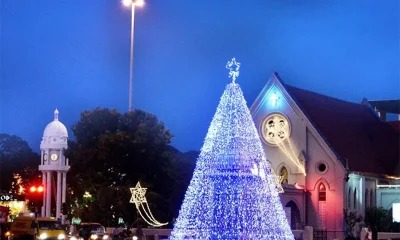
 Features7 days ago
Features7 days agoThe recovery has begun
-
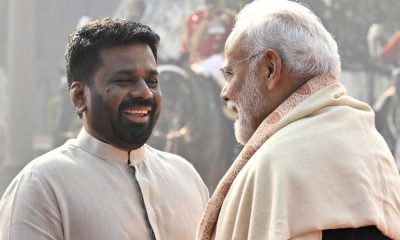
 Features6 days ago
Features6 days agoAKD faces challenging year ahead
-

 Editorial7 days ago
Editorial7 days agoBashing bureaucrats
-

 Editorial6 days ago
Editorial6 days agoA kiri-kekiri issue
-

 Sports6 days ago
Sports6 days agoSt. Sebastian’s dominate at Bambalapitiya
-
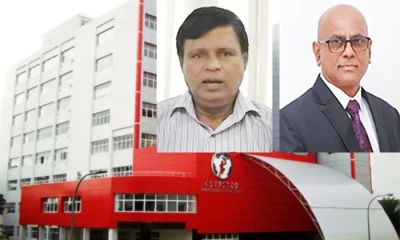
 News7 days ago
News7 days agoFM circular violated, Rs. 4 bn paid to CPC workers
-
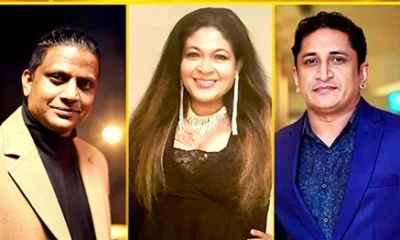
 Features5 days ago
Features5 days agoThey, too, had a ball …Down Under
-
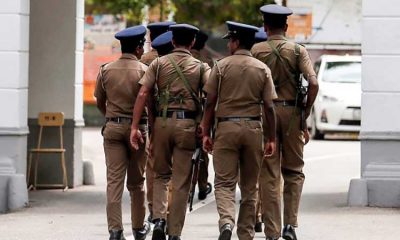
 News3 days ago
News3 days agoReshuffle of senior cops on the cards













